Should city leaders play a greater role in improving schools across Fort Worth?
Fort Worth’s public education system is divided among a dozen school districts and 13 public charter networks, with no single local entity responsible for holding them accountable for the quality of education they provide the city’s children.
After years of lackluster performance on state exams and other ongoing issues exacerbated by the pandemic, several education advocates and city officials say city government should play a larger role in supporting public schools and demanding improvement.
The quality of schools has traditionally fallen outside of the purview of city officials. But many civic leaders, including Mayor Mattie Parker, say that because education plays such a significant role in Fort Worth’s overall welfare, its leaders need to take responsibility for how its schools perform.
“Education affects everything in the city,” Parker said.
No formal role for Texas cities in education
The Fort Worth Independent School District is the largest district in the city, but only about 44% of the city’s public school students go to Fort Worth ISD schools, according to the Fort Worth Education Partnership. Across all districts and charter schools, Fort Worth’s public school students in grades 3-8 scored on grade level in any subject just 36% of the time on the 2022 STAAR exams, according to state figures compiled by the nonprofit.
Although Fort Worth ISD officials can point to improvements since the beginning of the COVID-19 pandemic, only 38% of third-graders in the district scored on grade level in reading on last spring’s STAAR exams. But the district isn’t the only one struggling: In Lake Worth ISD, which covers part of northwest Fort Worth, just 23% of third-graders met grade level in reading on the state test. And in the Castleberry, Crowley and Eagle Mountain-Saginaw school districts, fewer than half of third-graders scored on grade level in reading.
Struggling schools
A total of 27 schools in Fort Worth scored below 70 on this year's school accountability ratings from the Texas Education Agency. That total includes campuses in three school districts and two charter school campuses. Tap the schools for more information. Source: Texas Education Agency.
In Texas, school districts are run by elected school boards and the superintendents they hire, with no formal role for city officials. Brent Beasley, director of the Fort Worth Education Partnership, has long lobbied for city council members to get more involved in education in their districts. The partnership advocates for high-quality education options in all parts of the city, including traditional school districts and public charter schools.
The fact that a dozen school districts cover parts of Fort Worth leaves the city without a single person in charge of its entire education system. The mayor can be the one person to work on behalf of parents and students across the city, Beasley said, reaching across the “spaghetti-like” school district boundaries to address issues that touch schools and students in Fort Worth.
The quality of public education offerings is critical to the city’s welfare, and the mayor and the city council members are uniquely placed to help advance that goal, he said. In some cases, city officials can tackle challenges affecting education that school leaders aren’t equipped to handle themselves.
As an example, Beasley pointed to the city’s work in the Las Vegas Trail neighborhood. City officials have made a priority of curbing violent crime in the area and improving residents’ access to services after a 2017 series in the Star-Telegram highlighted ongoing problems with gun violence, poverty and child exploitation. In response, then-Mayor Betsy Price and then-council member Brian Byrd led a public-private partnership to revitalize the area. Those efforts led to the opening of a Boys & Girls Club Center, a public library branch and a community center, as well as reductions in violent crime in the neighborhood. Most of those projects fall outside the purview of Fort Worth ISD. But they contribute to the overall well-being of students and their families, which affects how those students do in school, Beasley said.
Public Wi-Fi project supports students
Parker, the current Fort Worth mayor, said that kind of narrow focus on a single underserved community might not be scalable across the city. But not every neighborhood needs that kind of project, she said. City leaders need to work with school officials to find out what each neighborhood needs to ensure its students can succeed in school, she said.
As an example, she pointed to the free public Wi-Fi service the city rolled out last year in the Stop Six, Ash Crescent, North Side, Como and Rosemont neighborhoods. When schools shut down at the beginning of the pandemic, students who didn’t have broadband internet at home were left unable to participate in remote learning. The school district scrambled to distribute Wi-Fi hotspots to those students, but district officials acknowledged they were an imperfect, emergency solution.
In 2020, the city announced plans to install routers on street lights, stop lights and other utilities to relay Wi-Fi signals from public buildings into the surrounding neighborhoods. That project, which ran alongside a similar Fort Worth ISD effort in other neighborhoods, came online last year, giving students who didn’t have high-speed internet at home more reliable access to online learning.
Even if mayors don’t have direct authority over schools, it makes sense that they would be concerned about how they’re faring, Parker said. The quality of the city’s education system affects nearly everything else that happens in that city, she said, including economic development, the workforce and crime.
So far, every school district the city council has approached has been receptive to the idea of working with the city as a partner, she said. But the council and city officials need to make sure to approach those relationships as a partnership, rather than having the council dictate to school districts what needs to be done, she said.
City partnership key for Las Vegas Trail charter school
The city’s work in the Las Vegas Trail neighborhood also highlights another tool city leaders can use to promote high-quality education: Besides working to improve living conditions in the area, Price and Byrd also led efforts to recruit IDEA Public Schools, a charter network based in South Texas, to open a school in the neighborhood. That campus, called IDEA Rise, is now one of the highest-rated public schools in the Dallas-Fort Worth area, while nearby Fort Worth ISD schools continue to struggle.
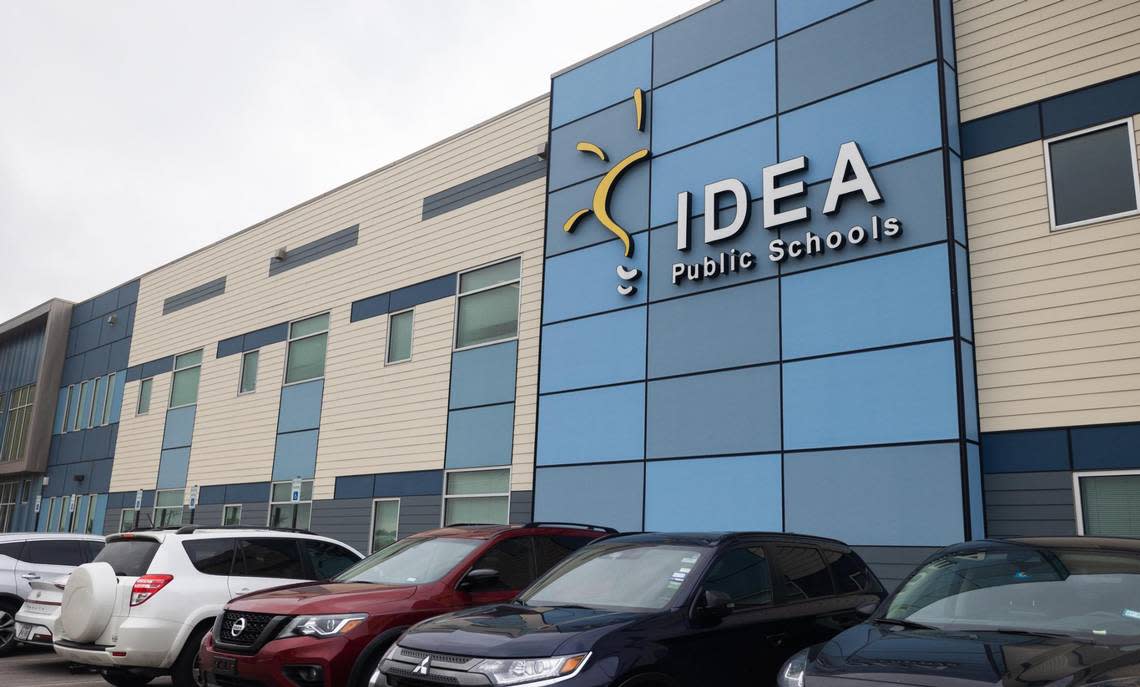
Nicolas Ditto, principal of IDEA Rise, said the school’s partnership with the city has been critical to its early success. The property where IDEA Rise was built used to be an empty lot, he said, so there were no crosswalks or signs warning drivers to slow down. But Byrd’s office helped make sure those things were in place before the beginning of the school year, Ditto said. Later, when the school expanded and needed its crosswalk moved, city officials worked with them to get it done quickly so there was no disruption to the school year, he said.
Byrd left office in 2021 and was replaced by Michael Crain, his former District 3 director. The fact that Crain had worked in Byrd’s office made the transition seamless from the school’s perspective, Ditto said. Crain visited the campus in May for a Principal for the Day event, in which local leaders talked to students about their jobs and helped out in classrooms, he said.
“He’s been a really great partner with us with that transition,” Ditto said. “... There has been not one single little hiccup.”
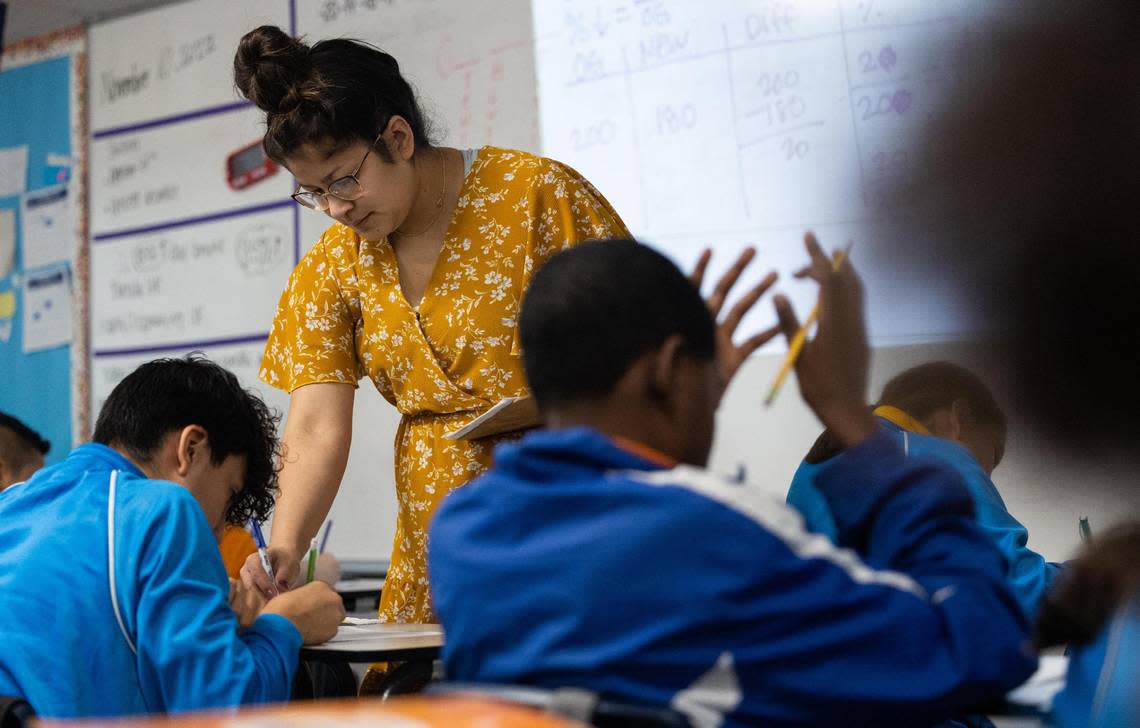
Dallas mayor worked to improve schools
It’s unusual in Texas for a mayor to be involved in the city school system, but it isn’t without precedent. Mike Rawlings, who served as mayor of Dallas between 2011 and 2019, made improving public education a priority.
Rawlings told the Star-Telegram that education was an “existential issue” in Dallas during his term as mayor. The city would have atrophied and died without a great public school system, he said. Cities typically grow by attracting families, he said, and without high-quality education, Dallas couldn’t hope to do that. He pointed to the loss of two corporate headquarters — Toyota, which opted in 2014 to move its North American headquarters from the Los Angeles suburbs to Plano instead of Dallas, and 7-Eleven, which moved its headquarters from Dallas to Irving in 2017 — as examples of how subpar schools made the city less competitive.

“People will do anything for their kids,” he said. “And they’re definitely going to move out of the city for a better school system if they can.”
Three months after taking office, Rawlings announced the formation of the Commit Partnership, a nonprofit that works to develop strategies and best practices for improving public education. The partnership brings together institutions in various sectors, including K-12, higher education, business and government to find ways to deal with challenges facing public schools in Dallas County. Rawlings also raised private money for a series of education initiatives, including a reading program, an internship program and back-to-school fairs.
In 2014, Rawlings spearheaded efforts to convert the Dallas Independent School District into a home-rule charter district, which would have freed the district from certain state mandates and allowed it to implement a new governance structure. Those efforts ultimately failed, but Rawlings said the campaign gave him more credibility to work on education issues. He used that credibility to help elect more reform-minded school board trustees, which he says ultimately contributed to Dallas ISD’s turnaround. A report released in 2021 by the Council of the Great City Schools lists Dallas ISD as one of several major urban districts across the country that had made better-than-expected academic progress over the previous decade.
“Now, we’re a place that people want to send their kids to school, versus get the hell out of Dodge,” Rawlings said.
Child welfare is mayor’s responsibility
Although the mayor has no formal role in a city’s education system in Texas, he or she is still responsible for everything that goes on in the city, Rawlings said. The fact that the city’s charter doesn’t give the mayor or city council direct authority over the school district doesn’t mean they can’t get involved in finding solutions to problems, he said.
The fact that Parker wants to get involved in education at all is laudable, Rawlings said. Now, he said, the question is how she will work with other city leaders to get things done. Mayors have a great deal of influence in their cities, he said, even in areas like education, where that influence is informal.
“When the mayor speaks, school board trustees do sit up and listen,” he said. “Sometimes they don’t like it. Sometimes they do like it, but at least they do listen.”
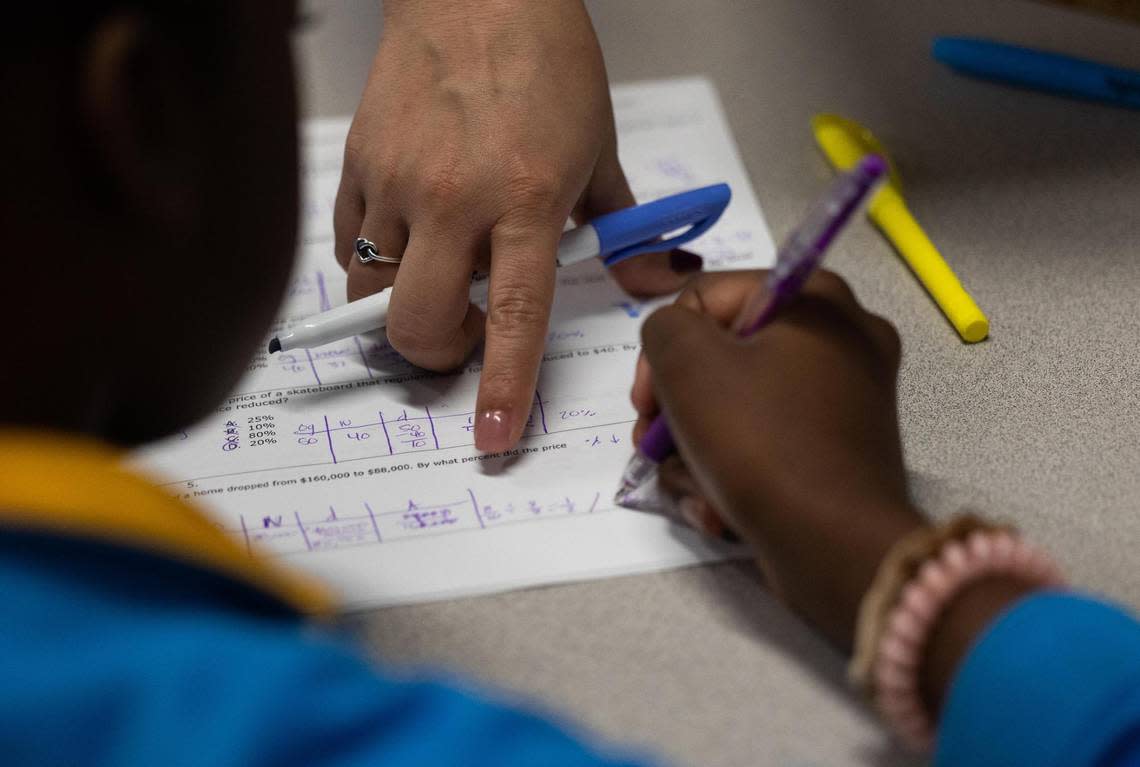
Tom Luce, founder of the Texas 2036 campaign, a public policy think-tank, said it’s unusual in Texas’ recent history for mayors to insert themselves into school district operations. But mayors can be well-positioned to push for change when school districts aren’t performing well, he said. Traditionally, the responsibility of holding school officials accountable falls to the school board. But Luce said many school boards focus more on the business of running the school district and leave the question of academic performance to the superintendent and district staff. Sometimes, he said, they need outside pressure to convince them to pay attention to students’ academic performance.
One of Parker’s primary education initiatives is the Mayor’s Council on Education and the Workforce, which Parker announced last spring. The council seeks to boost the number of students graduating high school with a post-secondary degree or professional credential, and build better alignment between training programs available in Fort Worth and the needs of the city’s industries.
Her involvement in education didn’t begin with her term as mayor. Before taking office, she was founding CEO of the Tarrant To and Through partnership, which seeks to connect Tarrant County students with college and career opportunities. Before that, she served as Price’s chief of staff, where she also worked on education-related initiatives.
Nettles hopes for stronger district-city partnership
Chris Nettles, the council member for District 8, said he’d like to see the city council and the Fort Worth ISD Board of Trustees meet once a year to talk about how the boards could support each other. He also invited Superintendent Angélica Ramsey to talk to the council about her strategy for the district at an upcoming meeting. He’d like to see Ramsey make presentations to the council once or twice a year as a part of a broader collaboration between the two public bodies, he said.
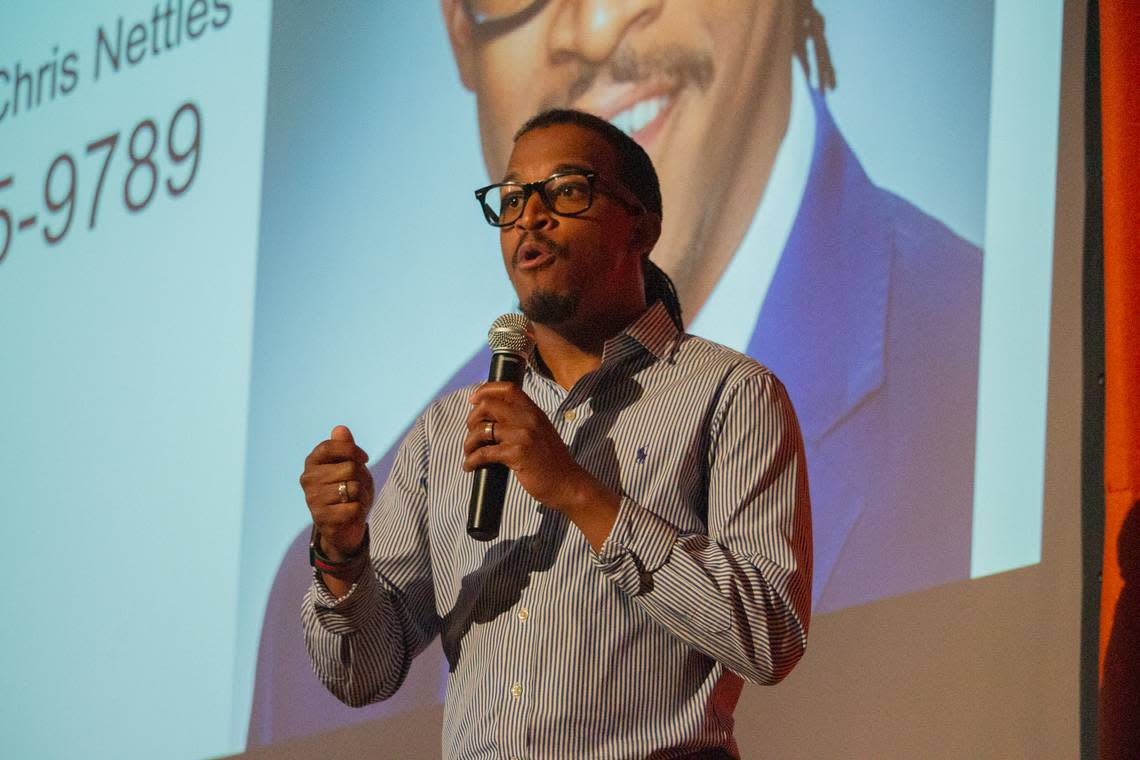
If city leaders had more insight into the school district’s needs, they might be able to help find resources, Nettles said. Council members could recruit volunteers to help out in classrooms or find funding to support third-grade reading improvements or prevent students from dropping out, he said.
Fort Worth needs to invest in its education system if it wants to remain strong, Nettles said. As the city continues to grow, it will need leaders who are up to the task, he said. The people who will become those leaders in 15 to 20 years are in its public schools now, he said.
“If we’re going to have a stronger city, we’re going to have to have a smarter city,” Nettles said.
Support for youngest learners
Ramsey, superintendent of Fort Worth ISD, said she supported greater ties between the district and the city. She’s working to arrange a meeting between the district’s school board and the city council, she said.
There are many areas where the city and county could support schools, Ramsey said. She pointed to the area of early childhood education: In general, school districts don’t get students until they’re 4 or 5 years old. By that time, students from low-income families already have language deficits of thousands of words compared to their more affluent classmates, she said. That puts them at a disadvantage for learning to read proficiently by third grade, she said. About 85% of students in the district qualify for free or reduced-price lunches, so the large majority of Fort Worth ISD students are behind even before they start school, she said.
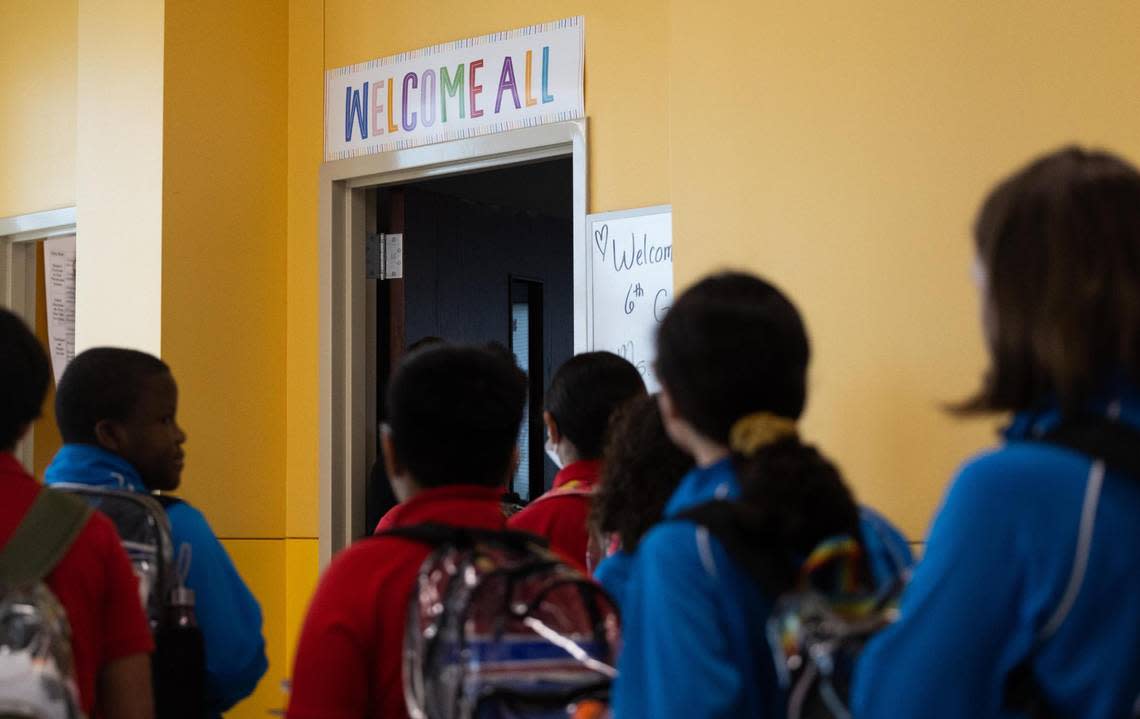
That’s an area where cities and counties could have a role to play, Ramsey said. Fort Worth and other nearby cities, as well as Tarrant County, recently devoted millions of dollars in federal COVID relief money to early learning priorities. Among other efforts, the city set aside $7 million to fund three new early childhood education sites.
Part of the city’s strategy for improving early learning needs to be working with parents to make sure they understand the importance of reading to their kids, Ramsey said. Cities could also organize small outings for families with young children designed to expose those kids to new words they haven’t had a chance to learn, she said. Those trips wouldn’t necessarily need to be elaborate, she said. They could be as simple as visits to a nearby grocery store to learn the names of fruits and vegetables and work on identifying colors, she said.
Ramsey said she’s pleased to see city leaders interested in getting involved in education. The city can bring together the leaders of the various school districts in the area in a way that doesn’t always happen on its own, she said. Superintendents in Tarrant County tend to be collaborative, she said, but since there isn’t a single person or agency convening them all, it can be too easy to cancel or reschedule meetings when things get busy.
‘Every Fort Worth kid matters to us’
Pete Geren, president and CEO of the Sid W. Richardson Foundation, said during a speech to the Rotary Club of Fort Worth in September that city leaders need to take a larger role in improving schools. Public education is a public service, much like roads, utilities and emergency services, he said. Noting that only 36% of students across the city performed on grade level on last year’s state tests, Geren questioned whether the public would be willing to accept similar performance from other public services.
“If our electricity worked 36% of the time, what would we do? Water at our homes 36% of the time, police response to emergencies 36% of the time, 36% of our roads passable? We wouldn’t stand for it,” he said. “Why are we OK with 36% of our kids at grade level?”
Geren, a former congressman representing Texas’ 12th congressional district, said public education is at least as important as any of those other services. The city needs good schools if it hopes to attract businesses, he said, and students need a high-quality education to prepare them to enter the workforce.
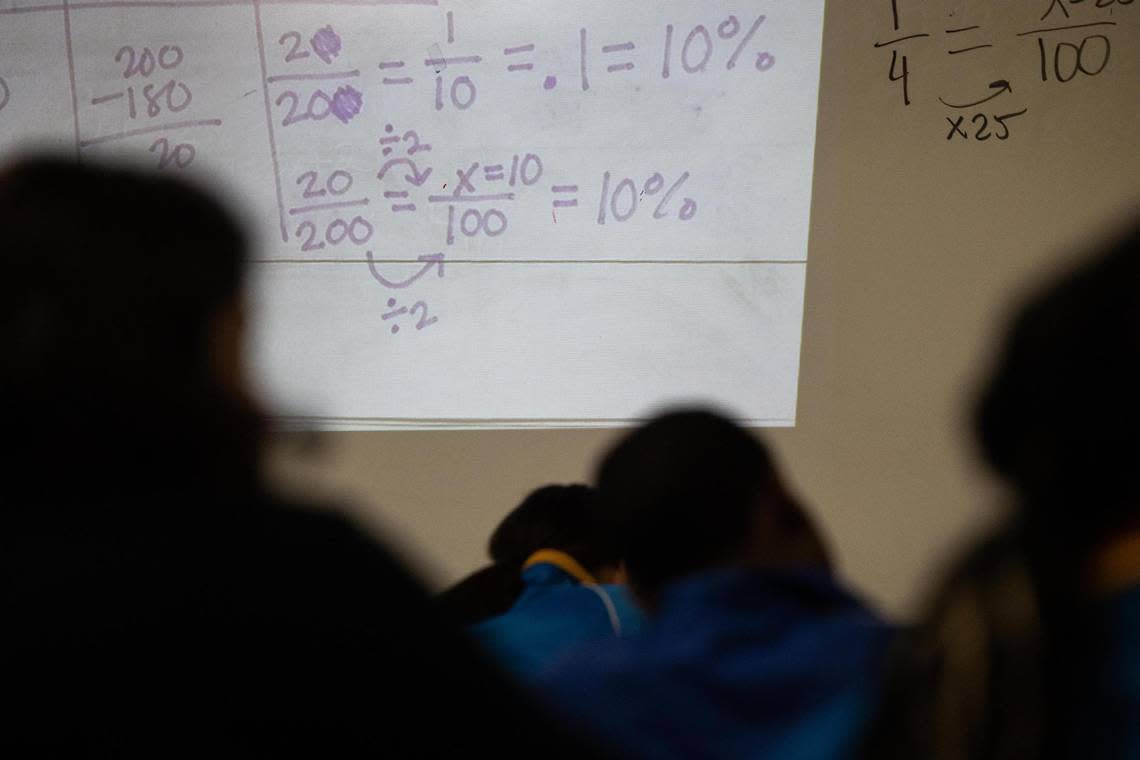
High-quality schools are also associated with better health outcomes and less crime, he said. Where the city’s education system falls down, city officials need to hold its leaders accountable, he said. And when they don’t, the public needs to hold city officials accountable, he said.
Beyond those reasons, providing high-quality schools is part of the city’s duty to the upcoming generation, Geren said. For that reason, it requires everyone in a position of leadership across Fort Worth to get involved to find solutions, he said.
“Whether they are our children, grandchildren, or somebody else’s children, every Fort Worth kid matters to us,” he said. “We have a moral obligation to provide every one of them with an education that prepares them for a bright future.”
Disclosure: The Sid W. Richardson Foundation is a supporter of the Star-Telegram’s Crossroads Lab, including the work of staff writer Silas Allen.
